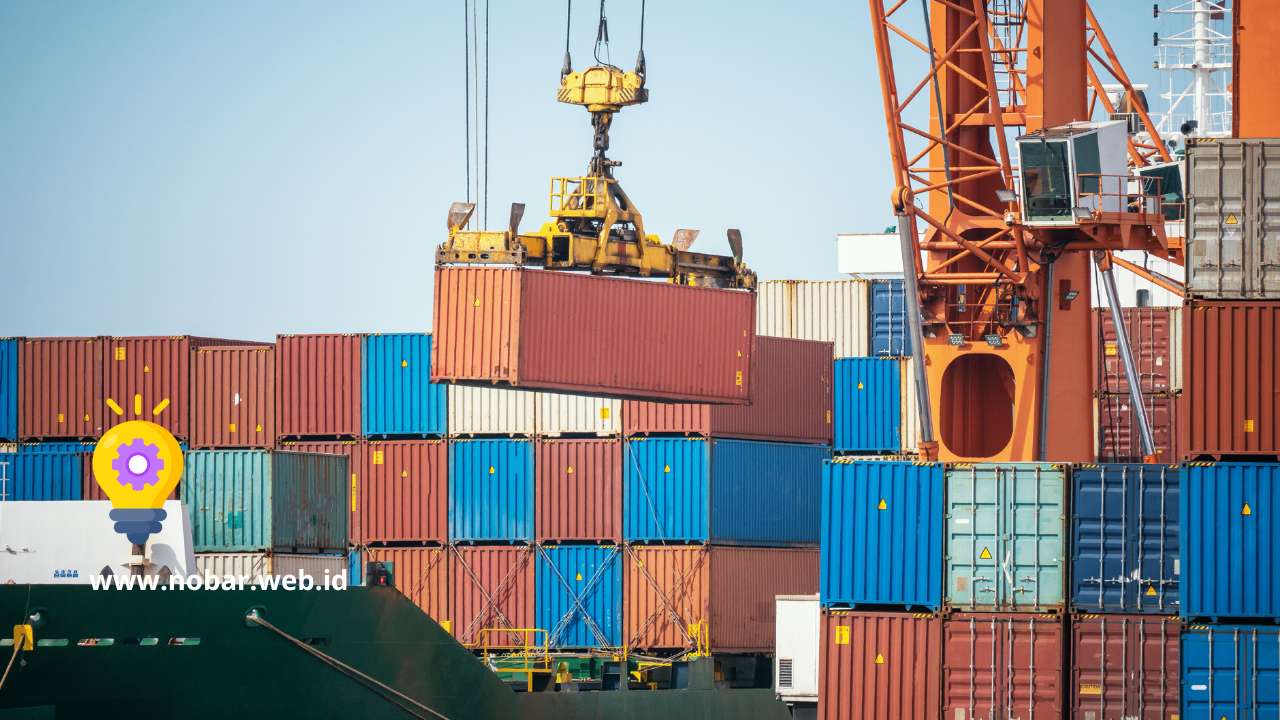1. What is Goods Insurance and Why is It Important?
Goods insurance, also known as cargo insurance, is a type of coverage that helps protect shipments from potential risks during transit. Whether you are shipping locally or internationally, your goods are vulnerable to a wide range of hazards, including theft, damage, or even complete loss. Having goods insurance provides you with peace of mind, knowing that if anything goes wrong during the transportation process, you are financially protected. For example, whether you are shipping industrial materials, consumer products, or even items made of akrilik, insuring your cargo is essential to prevent unexpected losses.
2. Benefit 1: Financial Protection Against Loss or Damage
One of the primary benefits of goods insurance is the financial protection it offers in case your shipment gets damaged or lost. Accidents can happen at any time during transit—vehicles can be involved in crashes, cargo can be mishandled, or extreme weather conditions may damage your goods. With insurance coverage in place, you can rest assured that you will be compensated for any financial loss due to damage or loss, significantly reducing your exposure to unexpected expenses.
Goods insurance can cover the full value of the items you are shipping, so you don’t have to worry about losing the money invested in your products. This benefit is particularly important for businesses that handle high-value items or are involved in frequent shipments, as the financial risk without insurance would be much higher.
3. Benefit 2: Peace of Mind for Business Owners
Running a business comes with many responsibilities, and the last thing you need is added stress over the safety of your shipments. Goods insurance provides business owners with peace of mind, knowing that their products are protected during transit. This sense of security can be invaluable, especially for small business owners who cannot afford to bear the cost of damaged or lost goods.
When you know that your shipments are insured, you can focus more on your core business operations, customer satisfaction, and growth. Having goods insurance also shows your customers that you care about the integrity of the delivery process, which can enhance their trust in your brand.
4. Benefit 3: Protection Against Liability
In some cases, goods in transit can cause damage to other people’s property or even harm individuals. Without proper insurance, you may be held liable for these damages, which could result in significant financial losses. Goods insurance provides liability coverage that protects you from these unexpected situations.
For instance, if a truck carrying your shipment accidentally damages another vehicle or causes injury, your goods insurance policy may help cover the costs of liability claims. This protection can help you avoid costly lawsuits and legal complications, allowing your business to run smoothly even in challenging circumstances.
5. Benefit 4: Coverage for Multiple Types of Transit
Another key benefit of goods insurance is that it provides coverage for different modes of transportation, whether it be by land, sea, or air. This flexibility is essential for businesses that need to ship goods across various regions and countries. Depending on your shipping requirements, you can choose a policy that offers the right coverage for the specific mode of transit you are using.
For example, if you are exporting goods internationally by sea, you can opt for marine cargo insurance, while for domestic shipments, you may choose road transit insurance. Goods insurance ensures that your products are covered throughout their journey, regardless of the mode of transportation, offering comprehensive protection from point A to point B.
6. Benefit 5: Enhancing Customer Trust
Having goods insurance in place can also help enhance trust between you and your customers. In today’s competitive marketplace, customers value reliability and safety when it comes to receiving their purchased products. When you provide assurance that their orders are insured and protected, it adds to their confidence in your business and encourages repeat purchases.
Goods insurance can also be used as a selling point for your services, especially when dealing with high-value or fragile items. It shows that you prioritize the safety and satisfaction of your customers, giving you an edge over competitors who may not provide similar guarantees.
7. How to Choose the Right Goods Insurance for Your Business
Selecting the right goods insurance policy for your business requires careful consideration of various factors, such as the type of goods being shipped, the value of those goods, and the mode of transportation. Here are some tips to help you make the best choice:
- Evaluate Your Shipping Needs: Understand the nature of the goods you are shipping and their value. High-value or fragile goods may require more comprehensive coverage.
- Compare Policies: Not all insurance policies are the same. Compare different insurance providers, coverage limits, and exclusions to find the best fit for your business.
- Understand the Exclusions: Make sure to read the policy details carefully to understand what is not covered. For example, certain natural disasters or acts of war may not be included in standard coverage.
- Consult an Expert: If you are unsure which insurance policy is best for your needs, consider consulting an insurance broker who specializes in goods insurance.
8. FAQs About Goods Insurance
1. What is goods insurance? Goods insurance is a type of insurance that provides financial protection for goods in transit, covering them against risks such as theft, damage, or loss.
2. Is goods insurance necessary for every shipment? While goods insurance is not always mandatory, it is highly recommended, especially for high-value items or fragile goods, to protect against potential financial losses during transit.
3. What types of goods can be insured? Most types of goods can be insured, including consumer products, raw materials, industrial equipment, and even items made of akrilik. However, some hazardous or restricted items may have limited coverage.
4. How is the cost of goods insurance calculated? The cost of goods insurance is typically calculated based on the value of the goods, the type of transportation, the distance of the journey, and the level of coverage required. Higher-value goods and international shipments usually incur higher premiums.
5. What should I do if my shipment is damaged or lost? If your shipment is damaged or lost, you should immediately notify your insurance provider and file a claim. Make sure to provide all necessary documentation, such as proof of value, photographs, and details of the incident, to support your claim.
6. Does goods insurance cover delays in delivery? Standard goods insurance policies usually do not cover delays in delivery. However, some specialized policies may offer limited coverage for delays, depending on the circumstances and conditions outlined in the policy.
7. Can I get coverage for international shipments? Yes, goods insurance offers coverage for international shipments. You can choose marine cargo insurance for sea freight or air cargo insurance for air shipments, depending on the mode of transport used.
8. What are the benefits of having goods insurance for my business? Goods insurance provides financial protection against loss or damage, peace of mind, liability protection, coverage for various modes of transit, and enhances customer trust—all of which contribute to the smooth operation and growth of your business.
Goods insurance is an essential tool for securing the safe transportation of your products, minimizing financial risk, and building a trustworthy relationship with your customers. Whether you run a small business or manage large-scale operations, insuring your shipments is a wise investment that ensures both you and your customers remain satisfied.
Read also: The Complete Guide to Insurance on Salvage Title Vehicles: Understanding Your Options and Risks



